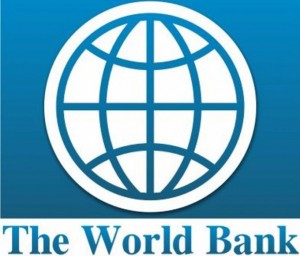World Bank approves $300m for Ghana to Improve Primary Health Care, Resource Mobilization, and Accountability for Better Service Delivery
 The World Bank on Friday June 10, 2022 approved financing of $300 million for Ghana. According to the Bank, the funds would go to support two programmes – $150 million for the Public Financial Management (PFM) for Service Delivery Programme and the other half would support the Primary Health Care Investment Program to help Ghana improve public resource mobilization and accountability for better service delivery and the quality and equity of primary health care.
The World Bank on Friday June 10, 2022 approved financing of $300 million for Ghana. According to the Bank, the funds would go to support two programmes – $150 million for the Public Financial Management (PFM) for Service Delivery Programme and the other half would support the Primary Health Care Investment Program to help Ghana improve public resource mobilization and accountability for better service delivery and the quality and equity of primary health care.
The Primary Health Care Investment Programme is co-financed by $31 million in grants by the Global Financing Facility (GFF), including $16 million to restore and protect essential health services amid multiple crises, including COVID-19, the Bank indicated.
It explained that the Primary Health Care Investment programme will support Ghana’s strategy for strengthening primary health care at the sub-district level and improving the accessibility and quality of essential health services. It will also support networking of primary health care services, and strengthen key management and financing systems, closely coordinated with the PFM Programme, as well as support improvements in coverage of the National Health Insurance Scheme, including for poor and vulnerable groups, and in its financing of primary health care services, the Bank said.
The Bank stated further that the PFM for Service Delivery Programme will support the government in improving public resource mobilization, allowing for increased fiscal space and greater resource allocation for public investment, and mitigation of Ghana’s debt situation.
It will also support the government’s programme in improving resource allocation consistent with government priorities by managing subsidies and transfers to state owned enterprises towards improving their performance, transparency, disclosure, and accountability through effective oversight.
“The two programmes support important government priorities in improving service delivery and accountability and are even more relevant as Ghana begins recovering from the COVID-19 context.
Supporting the Government of Ghana to raise additional budgetary resources, control spending, and ensure that spending efficiency is maximized for health and education services, as well as other sectors, will be an invaluable for investment in the human capital of Ghana’s population,” said Pierre Laporte, the World Bank Ghana Country Director for Ghana, Liberia, and Sierra Leone.
Monique Vledder, Head of Secretariat The Global Fund, commenting, said: “The Global Financing Facility (GFF) is proud to support the Government of Ghana’s leadership and commitment to strengthening health systems while ensuring access to essential health services, especially for women and children in the most vulnerable communities. By enhancing the quality of primary care services in communities and promoting sustainable financing, Ghana can drive a more equitable and resilient recovery.”
